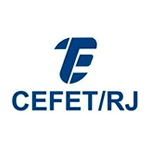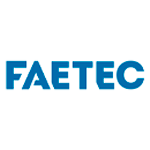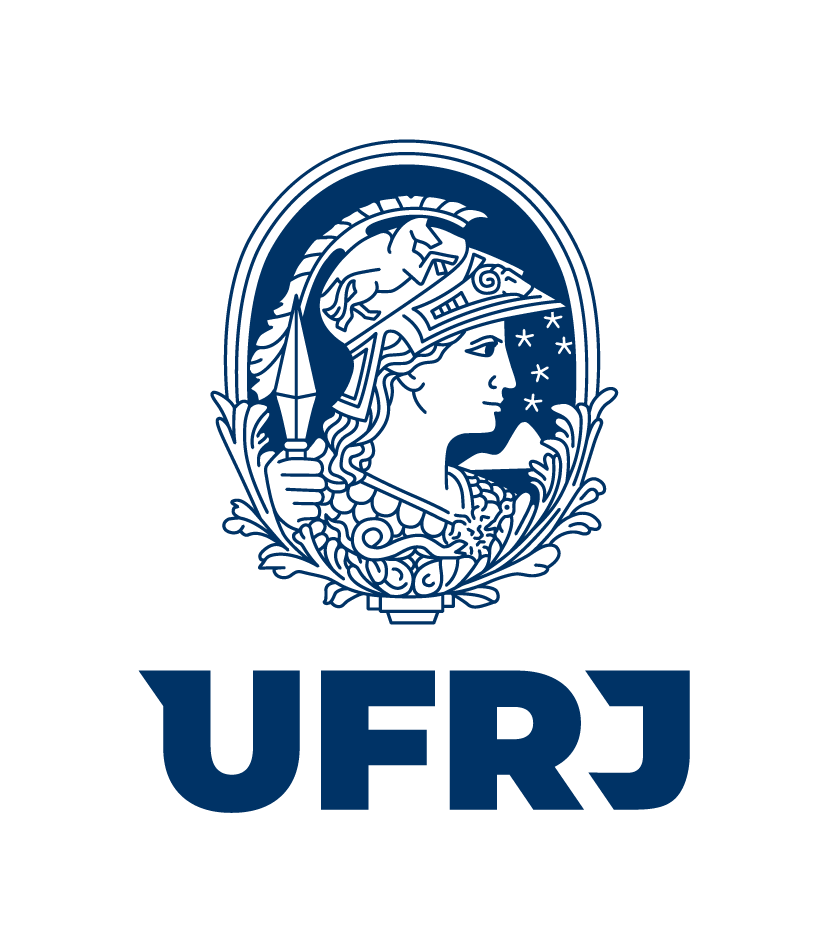Construção e Validade de Conteúdo de Trilha Informativa de Suporte à Inclusão de Alunos com TEA
DOI:
https://doi.org/10.18264/eadf.v15i1.2407Palavras-chave:
Transtorno do Espectro Autista, Transtornos do Neurodesenvolvimento, Educação inclusiva, Validade de conteúdo, Trilhas de aprendizagemResumo
O direito à escola regular é garantido por lei no Brasil aos alunos com deficiência há mais de trinta anos. Entretanto, a prática inclusiva em sala de aula ainda representa um grande desafio para toda a sociedade. Como princípios norteadores está o direito aos alunos com qualquer tipo de deficiência ter acesso ao conhecimento e a participação em sala de aula. Atualmente a produção de conhecimentos nesta área é crescente, mas há lacunas expressivas na produção de conhecimento sobre práticas pedagógicas inclusivas. Objetivo: Este estudo teve o objetivo de construir, validar e examinar a viabilidade do uso de uma Trilha Digital Informativa (TDI) como suporte à profissionais da educação da rede regular de Ensino a respeito da inclusão escolar de alunos com Transtorno do Espectro do Autismo (TEA). Método: Foram elaborados conteúdos de informação sobre temáticas distintas relacionadas ao TEA, organizados em seis módulos. A TDI foi apresentada em formato de e-book e enviada a 5 juízes especialistas para validação de conteúdo, considerando critérios definidos de objetividade, clareza e precisão. Resultados: Houve concordância dos avaliadores sobre o conteúdo disponibilizado na TDI, considerando objetividade (0,8211), clareza (0,7947) e precisão (0,7737). Desta forma, houve um alto percentual de concordância entre os juízes em relação ao conteúdo apresentado. Os resultados também puderam contribuir e esclarecer sobre as limitações do conteúdo disponibilizado. Este estudo traz novas perspectivas para pesquisas futuras sobre a formação continuada de profissionais da educação inclusiva de crianças com TEA.
Palavras-chave: Transtorno do Espectro Autista. Transtornos do Neurodesenvolvimento. Educação inclusiva. Validade de conteúdo. Trilha informativa.
Downloads
Referências
AMERICAN PSYCHIATRIC ASSOCIATION. Manual Diagnóstico e Estatístico de Transtorno Mentais:DSM-5 TR. Porto Alegre: Artmed, 2022.
AMERICAN PSYCHIATRIC ASSOCIATION. Manual Diagnóstico e Estatístico de Transtornos Mentais: DSM-5 TR. Porto Alegre: Artmed, 2022.
BRASIL. Lei n.º 12.764, de 27 de dezembro de 2012. Institui a Política Nacional de Proteção dos Direitos da Pessoa com Transtorno do Espectro Autista e altera a Lei n.º 7.853, de 24 de outubro de 1989. Diário Oficial da União: seção 1, Brasília, DF, 27 dez. 2012.
BRÍGIDO, E.; RODRIGUES, A; SANTOS, S. Construção e Validação do Questionário de Comportamentos Típicos na Perturbação do Espectro do Autismo. Revista Brasileira de Educação Especial, v. 27, p. 1005–1020, 2021. Disponível em:https://doi.org/10.1590/1980-54702021v27e0227
CENTERS FOR DISEASE CONTROL AND PREVENTION (CDC). Prevalence of Autism Spectrum Disorder Among Children Aged 8 Years – Autism and Developmental Disabilities Monitoring Network, 11 Sites, United States, 2020. Morbidity and Mortality Weekly Report (MMWR), v. 72, n. 2, p. 1-7, 2023. Disponível em: https://www.cdc.gov/mmwr/volumes/72/ss/ss7202a1.htm
COHEN, J. A coefficient of agreement for nominal scales. Educational and Psychological Measurement, v. 20, p. 37-46, 1960.
FRANCIS, T; BAKER-HENNINGHAM, H. Design and Implementation of the Irie Homes Toolbox: A Violence Prevention, Early Childhood, Parenting Program. Frontiers in Public Health, v. 8, p. 1–21, 2020. Disponível em: https://doi.org/10.3389/fpubh.2020.582961
GLAT, R.; PLETSCH, M. D. O papel da Universidade no contexto da política de Educação Inclusiva: reflexões sobre a formação de recursos humanos e a produção de conhecimento. Revista Educação Especial, v. 23, n. 38, p. 345–356, 2010.
GÓMEZ-MARÍ, I.; SANZ-CERVERA, P.; TÁRRAGA-MÍNGUEZ. R. Teachers’ Knowledge Regarding Autism Spectrum Disorder (ASD): A Systematic Review. Sustainability, v. 13, n. 5097, 2021. Disponível em: https://doi.org/10.3390/su13095097
GWET, K. L. Handbook of Inter-Rater Reliability: The Definitive Guide to Measuring the Extent of Agreement Among Raters. 4. ed. Gaithersburg, MD: Advanced Analytics, 2012.
HEHIR, T. et al. Os benefícios da Educação Inclusiva para estudantes com e sem deficiência. São Paulo: Instituto LANA, 2016.
KUTCHER, S. et al. Educator mental health literacy: a programme evaluation ofthe teacher training education on the mental health & high school curriculum guide. Advances in School Mental Health Promotion, 6(2), 83–93. https://doi.org/10.1080/1754730X.2013.784615
LANDIS, J. R.; KOCH, G. The measurement of observer agreement for categorical data. Biometrics, v. 33, n. 1, p. 159-174, 1977.
LARA-CRUZ, A.; et al. Conocimiento sobre trastornos del neurodesarrollo asociado con la aceptación del modelo de educación inclusiva en docentes de educación básica. Salud pública Méx, v. 62, n. 5, 2020. Disponível em: https://doi.org/10.21149/11204.
MENDES, E. G. Formação de professores. In: TIBYRIÇÁ, Renata Flores; D’ANTINO, Maria Heloísa Famá (Org.). Direitos das pessoas com autismo. Comentários Interdisciplinares. À 12.764/12. São Paulo: Memnon, 2018.
MOUSINHO, R. et al. Estratégias linguísticas para crianças e adolescentes TEA no Ensino Fundamental e médio. In: SOARES, Ângela Mathylde; MOUSINHO, Renata. Tenho um aluno Autista: E Agora? 1. ed. Belo Horizonte: ARTESÃ, 2021.
O’CATHAIN, A. et al. Guidance on how to develop complex interventions to improve health and healthcare. BMJ Open, v. 9, n. 8, p. 1–9, 2019. Disponível em: https://doi.org/10.1136/bmjopen-2019-029954
ORGANIZAÇÃO MUNDIAL DA SAÚDE. Classificação Estatística Internacional de Doenças e Problemas Relacionados à Saúde (CID-11). Genebra: OMS, 2019. Disponível em: https://icd.who.int/en. Acesso em: 04 jul. 2023.
ORGANIZAÇÃO MUNDIAL DA SAÚDE. Classificação Internacional de Funcionalidade, Incapacidade e Saúde: CIF. Genebra: OMS, 2001. Disponível em: https://www.who.int/standards/classifications/international-classification-of-functioning-disability-and-health - Acesso em: 04 jul. 2024.
ORSATI, F. T.; ASHBY, C. E. O que não é negociável na educação inclusiva. In: ORSATI, Fernanda Takano et al. (Org). Transdisciplinaridade e Interdisciplinaridade na Educação. 1. ed. São Paulo: Edicon, 2020. p. 183–204.
SAAD, A. G. F. Construção de uma trilha informativa de suporte à inclusão de alunos com TEA, para professores do ensino fundamental: indicadores de efetividade. 2023. [Tese de Doutorado]. Disponível em: https://dspace.mackenzie.br/handle/10899/33429
SCHLEICHER, A. Lessons from the world on effective teaching and learning environments. Journal of Teacher Education, v. 62, n. 2, p. 202–221, 2011.
SOUZA, A. C. et al. Propriedades psicométricas na avaliação de instrumentos: avaliação da confiabilidade e da validade. Epidemiologia e Serviços de Saúde, v. 36, n. 1, p. 3–15, 2017. Disponível em: https://doi.org/10.5123/S1679-49742017000300022
TARESH, S. M. et al. Effectiveness of Educational Module of Autism Spectrum Disorder (EMASD) in Identifying Children with ASD among preschool teachers: A Study Protocol for Parallel Cluster-Randomized Controlled Trial feasibility study. Research Square .2021. Disponível em: https://doi.org/10.21203/rs.3.rs-923156/v1
TIBYRIÇÁ, R. F.; D’ANTINO, M. H. F. Educação. In: TIBYRIÇÁ, R. F.; D’ANTINO, M. H. F. (Org.). Direitos das pessoas com autismo: Comentários Interdisciplinares. À 12.764/12. São Paulo: Memnon, 2018.
Downloads
Publicado
Como Citar
Edição
Seção
Licença
Copyright (c) 2025 EaD em Foco

Este trabalho está licenciado sob uma licença Creative Commons Attribution 4.0 International License.
Todos os artigos publicados na Revista EaD em Foco recebem a licença Creative Commons - Atribuição 4.0 Internacional (CC BY 4.0). Todas as publicações subsequentes, completas ou parciais, deverão ser feitas com o reconhecimento, nas citações, da Revista EaD em Foco como a editora original do artigo.













